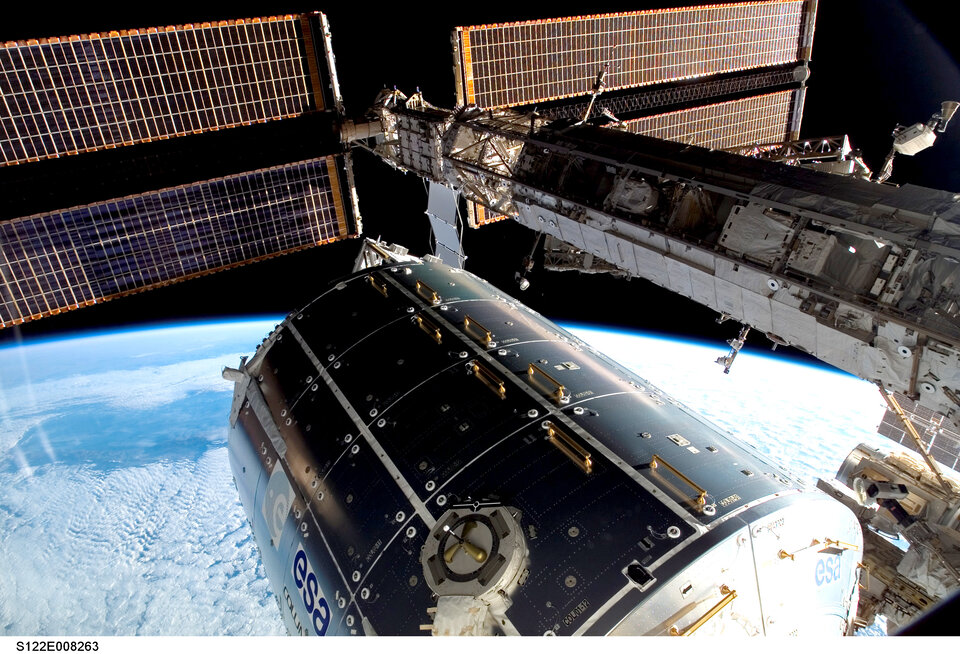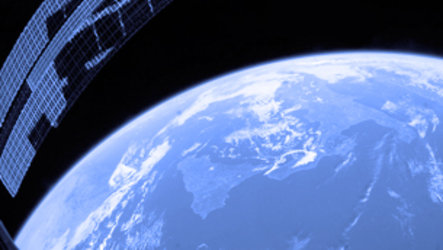Follow online: International Space Station symposium in Berlin
Senior scientists and heads of the five International Space Station partners will present ground-breaking research and discuss future projects in Berlin on 2–4 May. Follow the first International Space Station symposium live on the web through its dedicated website.
Visit www.isssymposium2012.com to follow the conference in real time. Throughout the symposium summaries of presentations will be posted along with video interviews with key participants.
Live streaming of the full programme starts at 11:00 GMT (13:00 CEST) on Wednesday 2 May with welcome addresses by Philipp Rösler, Minister of Economics and Vice-Chancellor of Germany, Jean-Jacques Dordain, ESA Director General, and Johann-Dietrich Wörner, CEO of the DLR German Aerospace Center.

Tune in at 15:00 GMT (17:00 CEST) to follow the presentation on AMS-02, a state-of-the-art cosmic-ray detector, installed on the Space Station last year, designed to examine fundamental properties of dark matter and antimatter.
This outstanding example of global cooperation involved more than a decade of work involving over 600 scientists and engineers.
The final highlight of the first day is a presentation by veteran cosmonaut Sergei Krikalev, head of Russia’s Gagarin Cosmonaut Training Centre.
Science from a lab in space

Thursday, 3 May will focus on scientific achievements in Station utilisation and case studies with senior scientists.
Plenary presentations and roundtable discussions will highlight the Station’s research priorities and benefits for humankind. Scientists worldwide are receiving out-of-this-world data from research on medicine including cardiology, neuroscience, osteology and immunology, to fluid physics, materials research, biotechnology and astrobiology.
At 08:35 GMT (10:35 CEST) on Thursday, watch the presentation on ESA’s flagship experiment in fundamental physics based on a new generation of atomic clocks.

This experiment on Europe’s Columbus laboratory module will be the most precise measurement of time yet – in space – and will be used to probe our knowledge of the fundamental laws of physics.
Studying osteoporosis or the fundamental principles of matter as well as investigating novel materials all share one thing: they benefit from research in space. And this may lead to new applications on Earth.
View the detailed programme through the links to the right.
Exploring the future

Chief researchers of the Space Station partners will be looking at future research priorities on Friday 4 May starting at 07:00 GMT (09:00 CEST).
NASA administrator Charles Bolden will present his vision of the future of the Station to help prepare for human exploration at 08:30 GMT (10:30 CEST).
The event closes at 10:00 GMT (12:00 CEST) after a press conference with: Jean-Jacques Dordain, Charles Bolden, Alexey Krasnov, Director of Human Spaceflight Programme Department at Roscosmos, Kiyoshi Higuchi, Vice President of JAXA, and Gilles Leclerc, Director General for Space Exploration at the Canadian Space Agency.








